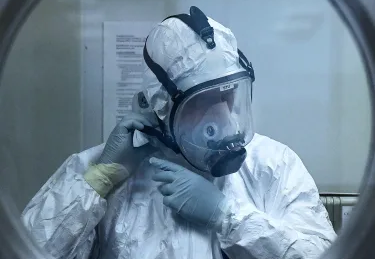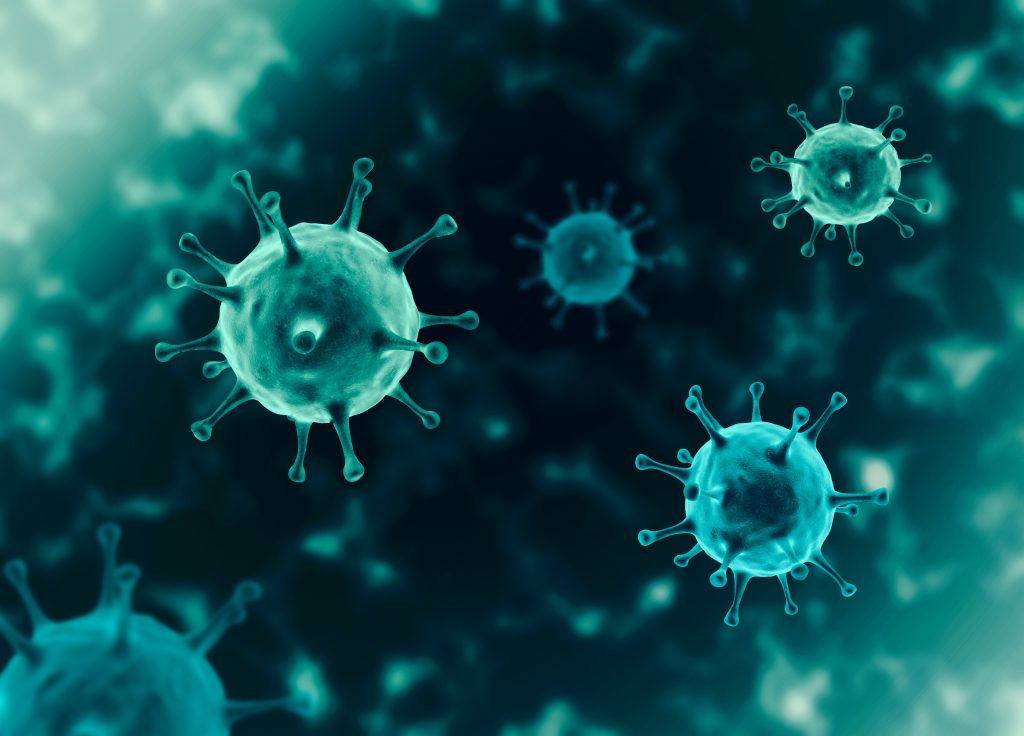New research unveils Australia’s distinct response to COVID-19 variants
Trailblazing COVID-19 research has detected a shift in the immune response of Australians as well as changes to impacts of the virus in our bodies – intel that will help us more effectively treat and manage new COVID variants as they emerge.
A shift in the immune response of Australians to COVID-19 variants, has been detected in trailblazing Australian research, which will help us more effectively manage and treat the virus.
Our immune systems are becoming more adept at heading off the COVID-19 virus at the pass. This is one of the significant findings of collaborative research which has shed light on Australia’s unique immunological response to evolving COVID-19 variants. The research also identified changes in how the COVID virus impacts our bodies. Using powerful tools and approaches, study observations then enabled the development of portfolios of rapid response platforms to ensure more targeted COVID responses. In further good news, the research revealed that Australians are now generating more mature antibody responses to neutralise the virus, particularly following extensive vaccine booster campaigns and exposure to different variant waves.
“More effective antibodies have emerged over time, making it increasingly challenging for new COVID-19 variants to evade and bypass them,” explains Associate Professor Stuart Turville, a molecular virologist from the Kirby Institute at UNSW Sydney, who was a corresponding author on the study published in The Lancet in April 2023. The findings have important implications for future vaccines, treatments and public health policies.
Less Severe COVID-19 Lung Infections
Newer dominant COVID-19 variants still enter tissue in a manner that does not lead to severe lung infections, like earlier variants did before the initial Omicron wave, the research found. Changes in maturation of our immune responses and in how the virus targets our bodies, are key. “I feel great relief at this positive news,” says Turville. “It demonstrates that, at the population level, we were on the right path in applying significant immunological pressure on the virus.”
These important insights will guide future pandemic policies. “The research findings provide us with vital information for best practice in the vaccination of populations and best practice in allowing sufficient time for individuals to develop mature immunological responses,” points out Turville, adding that Australia’s immunological journey throughout the pandemic was unique, and the variety of variants here, reflected that. “Time is critical,” Turville adds. “Safe and rapid vaccine rollouts will be important if and when we face the next pandemic threat.”

Tracking COVID Immune Responses
To date, this research is one of the most extensive explorations of how our immune systems are responding to the virus at the COVID coalface. It involved close to half a million donors and observation of individual immune responses, in addition to those at the population level.
Key first insights of the analysed research data from both the United States and Australia have detected shifting immune responses to the specific COVID-19 variants found in Australia. By uncovering how the immune systems of different people tackled COVID-19 variants during the pandemic, the research, “provides a fast way of assessing the risk to the Australian population from current and emerging COVID-19 variants,” Turville explains. It has also provided helpful intel about the most appropriate therapeutics available for those who are vulnerable and cannot sustain a protective immune response.
Monoclonal Therapies No Longer Advised
For this innovative study, researchers developed tools to collect live viruses from positive diagnostic swabs. They then used advanced microscopes and computers to test the viruses against thousands of samples containing COVID antibodies. This approach allowed researchers to safely and efficiently test all virus variants, supporting important new discoveries about COVID-19 treatments. Unlike other platforms worldwide that can take weeks to resolve the potential risk of a variant, this study team developed overnight automated assays that enable “snapshots” of the virus to be developed within a week of receipt of a viral positive swab. So, when a variant enters the community, risk profiles can be generated in real-time.
Based on this and other studies, the National Clinical Evidence Taskforce now advises that monoclonal antibody therapies, previously used to treat COVID-19, are no longer effective against currently circulating variants, such as Omicron (BA.5, BQ1.1 and BR2.1), and the newer subvariants (XBB.1 and XBF), for people who have difficulty developing strong vaccine or immune responses. Monoclonal therapies contain antibodies made in a lab to boost or mimic the work of the body’s own natural antibodies. They are given via an injection or IV infusion. These treatments include a combination therapy of tixagevimab and cilgavimab/sotrovimab, but they are no longer recommended for COVID-19.

NSW COVID Experts Leading The Way
Turville is part of the NSW Vaccine, Infection and Immunology (VIIM) Collaborative Research Group, a network of top researchers and practitioners throughout NSW, who supported the study. In 2021, VIIM received $4.5 million in funding from the NSW Government to investigate clinical and immunological responses to COVID vaccines in NSW recipients. Following the introduction of bivalent vaccines (which cover two different COVID strains), NSW provided an additional $370,000 to VIIM for a substudy to understand bivalent vaccine effectiveness against current and emerging COVID variants within the NSW population. Turville’s team plays an integral role in this program, as he is aligned with the NSW Genomic Team at the Institute of Clinical Pathology and Medical Research (ICPMR), headed by Professor Vitali Sintchenk. In this collaboration, the Turville team isolate hundreds of variants in a month, while the Sintchenko team feeds their IDs in real-time. “Key variants are then rapidly expanded for testing with the VIIM participants,” Turville explains. “This informs us that the vaccines can still generate responses that adequately cover each emerging variant.”
Keeping Up Positive Pressure On The Virus
Turville advises that his research team will continue monitoring future variants, including use of Australian blood donations and pooled antibodies, “to determine Australia’s current immunological status and assess if the next variants will pose challenges in the context of case numbers or if the virus has changed in the way it enters our bodies.”
A translational scientist with extensive expertise in molecular virology, Turville also emphasised that funding, such as the grant awarded to the VIIM cohort, is vital, adding, “It supports this kind of critical collaborative research, which informs Australia-specific health policies, shaping our future COVID-19 responses, protecting our population and saving lives. Without this funding, the team could not do the impactful translational work that they have done and continue to do. “Whilst COVID-19 may appear to be fading into the background, it is important that teams like mine do not turn our back on monitoring the virus,” says Turville. “Whilst our results provide positive news, we need to monitor and potentially adjust in the future for any unwanted surprises the virus may bring.”
Updated 1 year ago